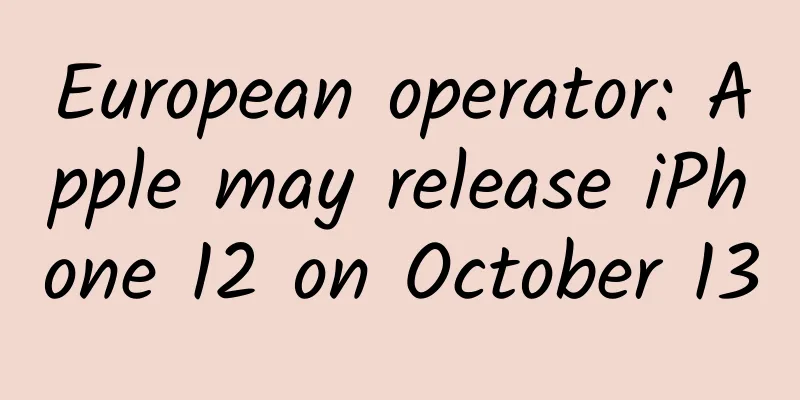Fecal treatment technology: a "wonderful adventure" of human microorganisms!

|
Fecal disease treatment technology: a wonderful adventure of human microorganisms Dear readers of Science Popularization China, you may have heard that there are hundreds of millions of microorganisms living in our intestines, and they are closely related to our health. Today, I will take you to explore this wonderful world of intestinal microorganisms and see how scientists use feces to treat diseases. Are you ready to explore with me? 1. Fecal microbial transplantation: subverting your understanding of intestinal microbes When we talk about fecal technology, we have to mention fecal microbial transplantation (FMT). As you may have guessed, the core of this technology is to implant a fecal sample from a healthy person into the intestines of another person. It sounds a bit weird, right? But in fact, this practice already exists and is widely used. So, what is so magical about fecal microbial transplantation? It turns out that our intestinal microbial community is like a huge ecosystem, inhabited by a variety of microorganisms. These microorganisms coexist with us, provide us with nutrition, regulate metabolism, and even help us resist diseases. When this ecosystem is out of balance, it may lead to some health problems, such as intestinal inflammation, intestinal infection, and even neurodegenerative diseases. The purpose of fecal microbial transplantation is to help patients rebuild healthy intestinal microbial communities by introducing fecal samples from healthy people. This is like introducing some "green vegetation" into the patient's intestinal microbial ecosystem to restore their balance. 2. The magical effect of fecal microbial transplantation Inflammatory bowel disease: Studies have found that the intestinal microbial community of patients with inflammatory bowel disease is defective. Through fecal microbial transplantation, scientists have successfully helped patients restore the balance of intestinal microbes and alleviated symptoms. Intestinal infections: Some patients are dying from severe intestinal infections. Fecal microbiota transplantation has become their life-saving straw. After many trials, scientists have found that this technology can effectively treat certain intestinal infections. Neurodegenerative diseases: Recent studies have shown that gut microbes may be involved in the development of neurodegenerative diseases such as Alzheimer's and Parkinson's. Through fecal microbial transplants, scientists hope to change the trajectory of these diseases. Obesity and diabetes: Studies have shown that the gut microbiota of obese and diabetic patients is significantly different from that of healthy people. Through fecal microbiota transplantation, scientists hope to find a new treatment method to help these patients recover. 3. Future Prospects of Fecal Disease Treatment Technology Although fecal therapy sounds a bit unpleasant, it has shown great potential in treating some difficult and complicated diseases. As scientists delve deeper into the study of intestinal microorganisms, we are expected to see more breakthroughs in fecal therapy in the future. At the same time, it is also very important for ordinary people to understand and pay attention to their intestinal health. By adjusting diet, increasing exercise and maintaining good living habits, we can provide a good living environment for intestinal microorganisms and thus maintain good health. In addition, as technology develops, fecal treatment technology will become more convenient and safer. In the future, we may even be able to achieve fecal microbial transplantation through oral capsules or liquid medicines, making this technology closer to the public. 4. How to protect your gut microbiome? Although we cannot completely control the ecological balance of intestinal microorganisms, we can protect them by: Diverse diet: Eat a variety of foods rich in fiber and prebiotics, such as whole grains, vegetables, fruits, beans, and yogurt, to provide rich nutrition for your gut microbes. Avoid over-cleaning: While hygiene is important, over-cleaning can upset the balance of intestinal microorganisms. Minimize the use of antimicrobials and cleansing methods such as colon cleansing. Stick to moderate exercise: Moderate exercise helps improve metabolism and immunity, thereby improving intestinal health. Reduce stress: Being in a state of high pressure for a long time will affect the balance of the immune system and intestinal microorganisms. Learn to relax yourself and keep a happy mood. |
>>: This underestimated "cat" is actually an efficient "wolf-killing machine"!
Recommend
This symptom suddenly appears in the eyes, which may be caused by high blood pressure or diabetes
The fundus is the part where arteries, veins and ...
Product analysis of Kuaishou, Douyin and Weishi!
The article conducts a comparative analysis of th...
Why is the butterfly the most perverted and cruel creature in the world? Learn about its metamorphosis
When it comes to the most perverted and cruel cre...
What on earth does this little bastard grapefruit have to do with pomelo?
The citrus family has a long-standing reputation ...
One word difference: erythromycin ointment or erythromycin eye ointment, are you using it correctly?
In daily life, erythromycin ointment and erythrom...
The thinking strategies that must be learned for promotion and traffic generation, let’s talk about how to generate traffic currently?
In the Internet age, everyone only recognizes fou...
"Sun Wukong" of the cell world, how to release it from under the "Five Elements Mountain"?
Produced by: Science Popularization China Author:...
China Automobile Dealers Association: Automobile consumption index in November 2018 was 85.4
On December 3, 2018, the China Automobile Dealers...
Be careful if your phone shows these 4 symptoms! It may be dangerous!
If your phone has the following features This cou...
An unpopular project that uses TikTok account to monetize mobile phone wallpapers!
It is always more important to actually implement...
Soap and mosquitoes: the secret weapon to defeat the "return of the south wind"?
Recently, the unique phenomenon of "returnin...
Does Facebook really drive 16% of global mobile phone sales?
Facebook recently authorized Deloitte to quantify...
Mercedes-Benz new E-class starts at RMB 422,800
The 2016 Guangzhou Auto Show has kicked off. Merc...
China’s manufacturing industry is going astray: starting from Gree Air Conditioner making mobile phones
Gree, which has always focused on air conditioner...









